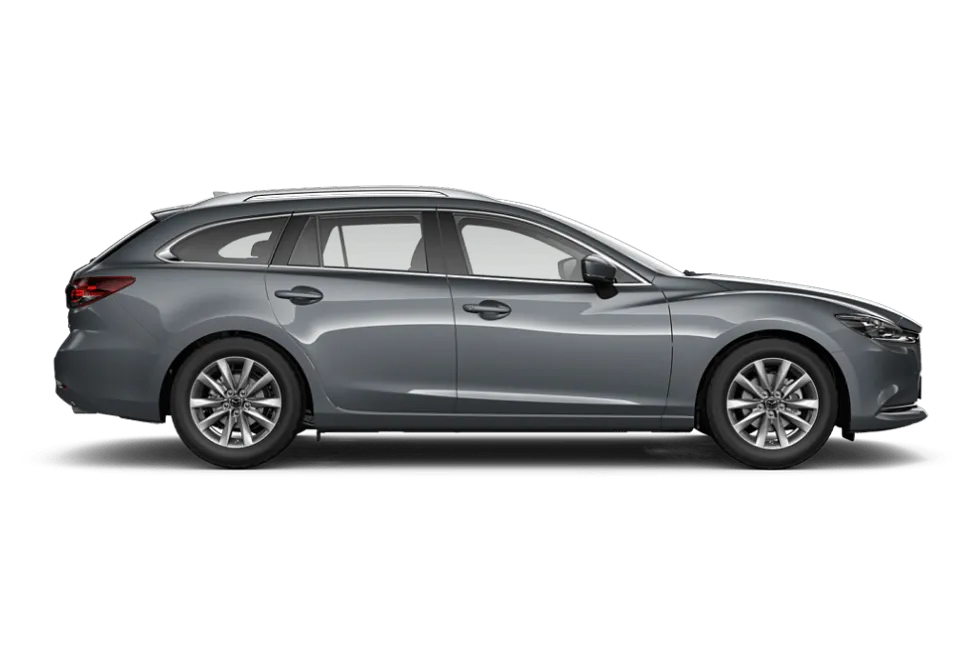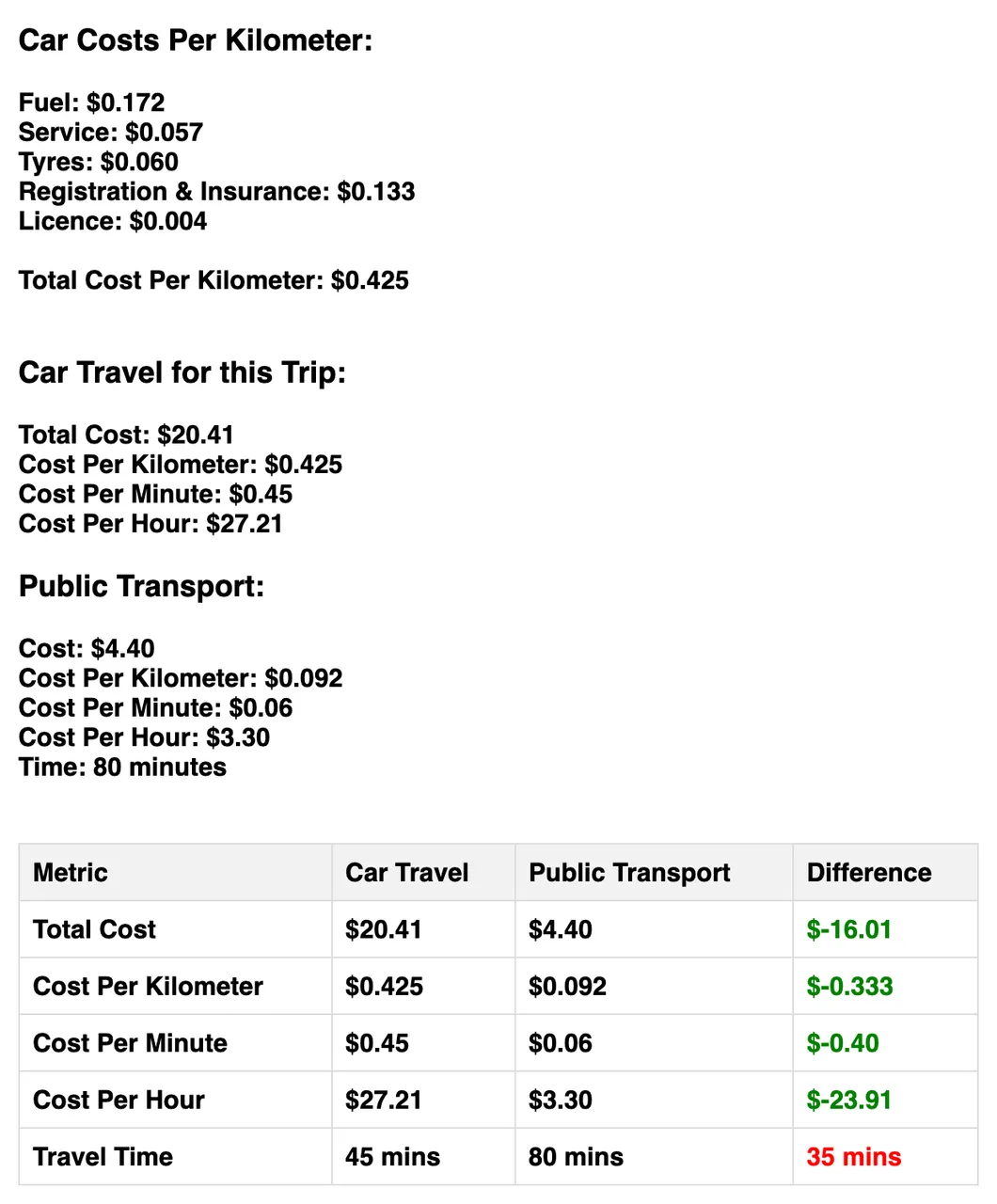
I am thinking a lot about money lately. Unemployment tends to do that to a person. I was going to say it does it to a man, but I'm trying to be as appealing as possible to a broad audience here with my rambling. I'm a person.
Anyway, I recently got a new car, a 2.5L Mazda 6 Wagon, and I love it. But when I look at what job I might end up doing in the future, travel times, distances etc, I need a good way to work out the economics of travel, particularly so if public transport isn't a viable option to arrive at my location in a reasonable amount of time.
I purchased my car outright, and it is fully paid off, so I don't have any loan repayments, interest or the like to worry about.
Having owned my new car for about eight months now, I've settled in to about 7.8L/100 KM, which is one of the baselines for my calculations. With an average fuel price of around $2.2 a litre my fuel comes to...
Fuel costs about 17.2 cents per kilometre.
I have calculated the annual servicing (over ten years) to cost an average of $858. Not all of these expenses are incurred each year, but rather, if I have the car for 100,000 KM (with a 10,000 KM service interval) - each of the services would cost this on average, based on Mazda's calculator on their website.
So for each 10,000 kilometres I drive, I pay 8.6 cents per kilometre to keep the car serviced.
Then, there's the cost of tyres. They're around $1500 for the ones I like to get - and they should last a minimum of 25000KM (though, in theory would last much longer) - this is a conservative calculation to allow for the provisions of spares, punctures, or repairs.
This means then, for every 25,000 kilometres I drive , I pay 6 cents per kilometre for tyres.
Then, there's insurance and registration. This are annual costs, and with the assumption that I drive 15,000 kilometres each year, with insurance costing around $1300 and registration being $690, the equation is a bit more nebulous, but still easy: 15,000 kilometres a year is 42 kilometres a day, and thus:
$1990 / 365 = $5.45 a day. 5.45 divided by 42 is 13 cents a day.
To drive, I need to renew my licence every year. Currently, that costs $55 a year if I pay for ten years at once. Again, with the assumption that I do 15,000 KM a year, that ends up costing less than a cent per kilometre. So let's call that cost a cent a kilometre.
I pay a cent per kilometre to keep my licence up to date and legal. (Which is a massive over-compensation)
So, I can then come down to adding these normalised costs together to get my final running costs for my car:
| Expense | Cost Per KM (cents) |
|---|---|
| Tyres | 6 |
| Licence | 1 |
| Fuel | 17.2 |
| Registration & Insurance | 13 |
| Servicing | 8.6 |
So my total costs per kilometre are 45.8 cents.
This doesn't include parking if I need to pay for it, so any assumptions I'll make about that are that parking is free.
As a simple example to analyse my expense, If I drive from my home to the city, it would be 48KM. The means it would cost, on aggregate, $21.98 one way. By contrast, a train ticket costs $4.4 in peak periods for a one way trip of the same distance.
Therefore, by taking the train, I'd be saving a whopping $17.58! ONE WAY.
But what about the time difference?
Driving takes about 45 minutes. The train takes an hour and twenty minutes door to door.
Therefore, driving costs 49 cents per minute. For a journey to the city, the train costs about 9c a minute.
That means that the train journey is 40cents a minute , or $24 an hour cheaper.
If I get a job in the city, I don't think I'll be driving.
I want to use this logic in the future for other calculations, So I got gemini to create a HTML / JS calculator for the logic I've outlined in this post.
You can use it here.
